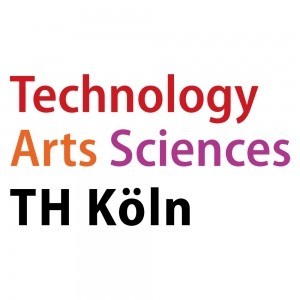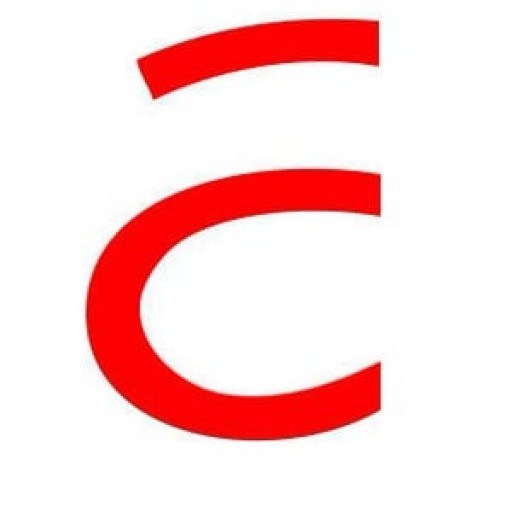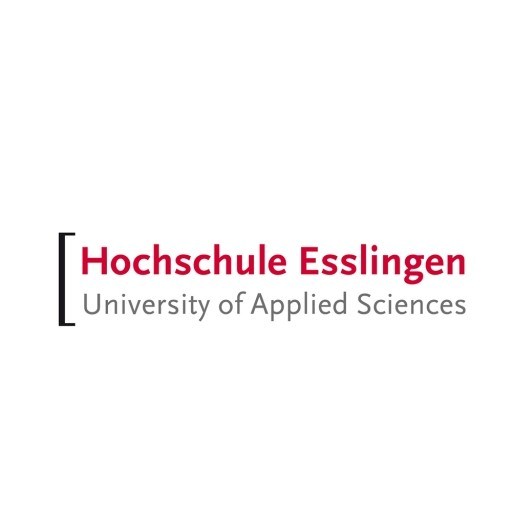Photos of university / #th_koeln
Integrated Design at TH Köln – University of Applied Sciences is a comprehensive and innovative degree program that prepares students to become versatile design professionals capable of addressing complex challenges across various sectors. The program emphasizes a holistic approach to design, integrating artistic creativity, technical skills, environmental consciousness, and user-centered thinking to foster sustainable and functional solutions. Students are introduced to a broad spectrum of design disciplines, including product design, communication design, interface design, and spatial design, enabling them to develop a versatile skill set adaptable to multiple industries.
Throughout the course of study, students engage in hands-on projects, collaborative work, and research activities that enhance their problem-solving abilities and creative thinking. They learn to develop concepts from initial ideation through to detailed realization, considering factors such as ergonomics, aesthetics, manufacturing processes, and ecological impact. The curriculum is designed to promote innovation, encouraging students to experiment with new materials, digital tools, and emerging technologies to stay at the forefront of design trends.
The program also places significant emphasis on sustainability and ethical responsibility, guiding students to create designs that are environmentally friendly and socially conscious. Interdisciplinary cooperation is a core element of the learning experience, with students working alongside peers from other fields and industry partners to simulate real-world collaboration scenarios. This prepares graduates to act as effective communicators and team members in diverse professional settings.
Students benefit from state-of-the-art facilities, including workshops, digital labs, and exhibition spaces, which provide a conducive environment for creative exploration and professional development. The curriculum integrates theoretical foundations with practical application, culminating in a final project that showcases students’ design capabilities and readiness for the professional world.
Career opportunities for graduates of Integrated Design are broad and varied, spanning industries such as product development, branding, user experience, interior design, and sustainable design consultancy. The program aims to equip students not only with technical expertise but also with critical thinking, entrepreneurial mindset, and adaptive skills required to thrive in a rapidly changing global market.
Ultimately, Integrated Design at TH Köln is not just about learning design principles; it is about cultivating innovative thinkers who can shape the future through responsible and impactful design solutions.
Educational organisation
The Master's degree programme comprises three stages of study: integrated, interdisciplinary, and elaborated. Students will be assisted at all stages by several university professors and will be supported intensively by two supervisors during the second and third semester when determining an individual project.Stage of Study: integrated - In the first semester the students deal intensively with the term integrative design and independently carry out design-related design and development work. After intensive research they develop their own questions in projects and studios, work on prototypes and models in the KISDlabs and develop their own perspectives in the fields of theory, action and design - Integrated Design.
Simultaneously, students explore the possibilities of professionalisation while getting to know and to evaluate the range of professional prospects in design within the Professional Opportunities.
Stage of Study: interdisciplinary - In the second semester the students work out individual research, development and design approaches and incorporate them into a reasonable interdisciplinary context in accordance with the subject chosen by them. The students develop their individual approaches by means of design-specific plotting tools, e.g. drawing, texting, modelling or mapping and then relate them to other disciplines. In this context, social, cultural and global dimensions of design are discussed with partners from industry, culture, education, and research. Enriched by their own teaching experience the semester finishes with the depiction of a defined subject approach and a draft presentation for further work.
Stage of Study: elaborated - The third semester is dedicated to self-dependent elaboration of the Master's thesis. The subjects of the second semester are further developed and, at least in two of the KISD areas of expertise, related systematically and interdisciplinarily. Part of the work includes a detailed and professional documentation, a presentation or exhibition within the university, and a colloquium.
Relate & Reflect During the Course of Study. All stages of study will be accompanied by a mentoring programme and a colloquium, giving the students the chance to discuss their development and objectives among each other. In this context, peer learning is regarded as an important aspect of the studies. The colloquium includes personal reflection and provides an open culture of discussion and feedback with participants such as the KISD professors and lecturers, students, and external partners. Therefore, mentoring and colloquiums are ground-breaking elements within the formation of a comprehensive spectrum of expertise.
Double Degree With Tongji University Shanghai/China. Within the subject "Urban Transformations", outstanding students have the possibility to acquire a double degree after successfully completing an additional semester at the College of Design and Innovation in Shanghai, China - the Master of Design of Tongji University. Further partners and subjects are in the planning stage and will follow.
Study abroad unit(s)
One (additional) semester possibleForms of assessment
Study journal, presentation, colloquium, papers, and a final thesisCourse objectives
Our students explore different possibilities of professionalisation in permanently changing occupational fields and realities already at the beginning of the Master's degree programme. It is essential to develop an understanding for the economical, social and technological relations of one's own work throughout the entire studies. Our students develop an individual profile within a broad spectrum of expertise, which unites methodological, theoretical, social, and communicative aspects. In this context, individual visions of professional perspectives are developed. Our graduates are qualified to manage and guide complex design processes in a permanently developing professional manner, and to carry out individual scientific research and development work.Language requirements
As the language of instruction is English, applicants should provide proof of English proficiency (TOEFL, IELTS or similar proof). For TOEFL a minimum of 79 (Internet-based version) is required.Academic requirements
Academic degree (BA or higher) with three and a half years' study time (210 ECTS), professional experience might be taken into account upon individual request.Please note that the application procedure is divided into two parts if you are coming from abroad and do not have a German school or university degree: in this case, you FIRST have to apply via uni-assist (see http://www.uni-assist.de/index_en.html).
KISD will ask you to take part in an assessment procedure for the MA "Integrated Design". Please check the online platform at http://application.kisd.de for further information.
We will request the following documents from you:
- Portfolio: if possible, update and adapt your existing portfolio for this assessment. Choose the projects and experiences that give a good overview both of your fields of interest and your design/design-related experiences and qualifications. Works can come from academic, professional or even free projects.
- Reference and letters of recommendation: please send us at least one letter of recommendation from either an academic or a professional institution/organisation. The person should also act as a personal referee - in case we require more information about you.
- Letter of motivation: state clearly why you want to study the graduate programme Integrated Design, why in Germany and why at KISD. We would like to find out how much you know about us and how this meets the expectations you have formulated.
- Study programme expectations: please let us know what exactly you expect from your graduate studies at KISD. This may take the form of a precise depiction of an integrated design project you have in mind - or a substantial argumentation of your general interest in the field of Integrated Design.
In any case, please try to be as clear and comprehensive as possible in presenting your expectations and interests. All materials should be designed by you with appropriate means. We give no specific "format" for the presentation of your application - so this is your opportunity to give us an idea of your skills, competencies in presenting your ideas, and specific interests regarding our programme.
For further information please have a look at: https://application.kisd.de/
Enrolment fees
The fee of about 250 EUR per semester includes a semester ticket covering public transport in the state of North Rhine-Westphalia.Costs of living
The costs of living for your stay largely depend on your personal needs. When planning your stay, you should calculate monthly costs of approximately 700-800 EUR.Job opportunities
Taking on a part-time job while studying has lots of benefits. Students can make some extra money, gain valuable professional experience, and might take a first step up on the career ladder.Whether and how long you are allowed to work during semester breaks is determined by your immigration office. The provisions applying to your specific case will be stated in your residence permit. To find out about these provisions, we recommend you make an inquiry at the immigration office during your first visit. International students from countries that are not member states of the EU, the EEA, or Switzerland are normally permitted to work 120 full or 240 half days per year if they are in possession of a valid residence permit for Germany.
TH Köln can assist you in finding a job that suits your profile and interests. Our Career Service and our Nebenjobservice (Part-Time Job Service) offer comprehensive counselling and specific information events on all aspects related to part-time jobs.
Please be aware that the level of your German language skills will strongly affect your chances of finding a part-time job, as German is the language of communication in Germany.
Funding opportunities within the university
TH Köln as well as other institutions offer different scholarships for international students such as the Deutschlandstipendium scholarship. Recipients receive approx. 300 EUR per month.https://www.th-koeln.de/en/international_office/deutschland-stipendium-scholarship---information-for-students_9164.php
Arrival support
A high level of self-reliance is required if you are interested in doing the MA Integrated Design at KISD. Through the application process you are supported by the application work group (apply@kisd.de). The International Office of TH Köln provides information and advice regarding scholarships, studies in Germany, enrolment at TH Köln and first steps in Cologne.Services and support for international students
TH Köln - University of Applied Sciences - follows the National Code of Conduct on Foreign Students at German Universities established by the German Rectors' Conference (HRK).The International Office provides advice and support for international students on all aspects related to studying at TH Köln. The International Office accompanies your stay at our university with a variety of programmes and events and invites you to become a part of our international community (e.g., mentoring programmes for new first semester students, TH Köln Buddy programme KARIBU, or Language Partnership programme).
Every semester, the International Office organises a semester programme including exciting cultural events to connect German and international students as well as activities to jointly discover different aspects of Cologne (e.g., a guided tour of Cologne, trips to museums and theatres, or a semester trip to the German capital Berlin).
Accommodation
Boasting a population of slightly more than one million, Cologne is Germany's fourth-largest metropolis - a highly attractive one on top of that. The increasing influx of people can make the search for adequate accommodation quite difficult. Dozens of apartment hunters often compete for a single apartment. That is why the International Office strongly recommends that you start looking for a place to live as soon as possible.The fierce competition on the housing market has resulted in above-market rents - particularly in proximity of the city centre. We therefore encourage you to be flexible: try to look for apartments outside the centre, as you will encounter less competition and lower rents.
Student dormitories
Cologne's most convenient and economical housing option is often a student dormitory. Kölner Studierendenwerk operates 86 student dorms offering roughly 4,700 rooms. Please be aware that TH Köln does not allocate the rooms in these dorms. In order to be allocated a room, please apply online on the website of Kölner Studentenwerk by clicking on "online-application". See: http://www.kstw.de/index.php?option=com_content&view=article&id=315&Itemid=11&lang=en.
The seemingly large number of dorm rooms is misleading; as the dormitories are open to the roughly 80,000 students enrolled at all Cologne universities, they are in extremely high demand. Make sure to apply for a dorm room at Kölner Studierendenwerk as early as possible.








